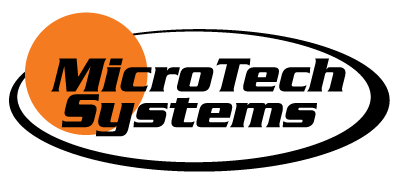
The On-Demand Economy: How Cloud Services Impact Your Business
Whether we realize it or not, companies across all industries are now operating in the on-demand economy.
The on-demand economy was worth over $35 billion in 2017 and is expected to eclipse $50 billion in 2018. Catering to the desire to purchase services on demand can unlock significant financial opportunities. And for SMBs, it’s important to recognize that this isn’t just an opportunity for the Ubers, Lyfts, and Instacarts of the world.
Rethinking your technology stack to adapt to this on-demand economy will help you become better aligned with the “I want it, when I want it or when I am ready” mentality of your customers and employees.
What’s Driving the On-Demand Economy?
The on-demand economy is a bit of a chicken-and-egg situation. Are software developers driving consumers to embrace this trend? Or are consumers demanding these experiences, causing major players like Amazon, Microsoft, and Google to invest billions in on-demand services?
The truth is that it’s a bit of both. Consumers, B2B buyers, and employees all want to enjoy services in smaller, right-sized increments.
Think about how we’ve come to use email services. Cloud-based email services like Gmail and Office 365 have become the norm as opposed to on-premises Exchange servers. Your business might sacrifice a bit of the performance gained from on-premises equipment, but you gain the flexibility of an on-demand experience in the cloud.
Even if you weren’t intentionally embracing the on-demand economy, its services have changed your business. You use cloud-based file storage solutions like Dropbox and Google Drive. You embrace web-based communications services like GoToMeeting and WebEx. And you run your business on cloud infrastructure services like AWS and Azure.
Many business leaders shift to this on-demand, cloud-based services for cost efficiency and ease of use. These are great benefits, but they aren’t the only ways the on-demand economy impacts your business.
How the On-Demand Economy Impacts All Aspects of Your Business
It’s quickly becoming cliché to say that your business is customer-centric. But cliché or not, your company has no choice but to adapt to the on-demand expectations of customers.
The internet hasn’t just given you better access to customers—it’s given your customers better access to a wider range of potential vendors. You need to make sure your products, services, and support stand out from the crowd. And that means keying into the various ways an on-demand economy impacts your organization.
There are four key categories to consider when evaluating how cloud-based, on-demand services are changing your business:
- Impact on Operations: The best example here is the evolution of real-time, remote customer support. In the past, this might have meant paying someone remotely to monitor the network through a secured connection. More often than not, it led to on-site support visits. Now, cloud technology has made it possible to provide true remote access to an outside team of experts who can support, monitor, and proactively make changes at a fraction of the cost of employing someone internally to do the same job. This translates into improved performance for your internal team and higher margins for ownership.
- Impact on Customer Expectations: Consider businesses that interact with customers on an appointment basis. It’s no longer a luxury to provide online and mobile booking. Customers expect these seamless, on-demand services. Without them, you risk losing customers to competitors who do offer these services.
- Impact on Ability to Innovate: Replacing dated, traditional systems and processes in favor of cloud-based services can free up a significant amount of resources in your business. They make processes less prone to error and allow your employees to focus on what truly matters to the business. Instead of wasting time maintaining aging processes, they can spend more time coming up with innovative solutions to customer problems.
- Impact on IT Infrastructure: Aside from turning cumbersome, on-premises infrastructure into cloud-based services, the on-demand economy exposes the IT stack to a much wider world of possible solutions. With so many choices, it’s almost impossible to be exposed to every option before making decisions. But that’s the benefit of an on-demand economy—you get to learn as you go and change quickly. If you have help from a trusted IT services provider, you can gain exposure more quickly and efficiently.
Change isn’t always easy for SMBs. We understand that. Just because someone tells you cloud-based email, collaboration, storage, and communication services can improve your business, doesn’t mean you want to undertake a migration process.
But the intimidating aspects of a shift to cloud services can be mitigated by the right partner. Your main focus should be how much more you can accomplish by embracing the latest technologies and services in the on-demand economy. You’ll operate more efficiently, deliver better customer experiences, and create more productive working environments for the next generations of employees.
Trying to decide if you have the right IT partner, download our 14 Critical Questions to Ask Your IT Vendor and make an informed decision for you.
We just have to ease the transition from a traditional IT infrastructure to one that supports an on-demand mindset.
Roadblocks to Meeting On-Demand Customer Expectations
The main reason that so many SMBs can’t meet the on-demand expectations of their customers is the existence of mediocre IT services.
For all the benefits of cloud-based services, relying so heavily on the internet to keep your business running can cause real problems. Downtime is a fact of life, but that just means we have to go beyond the poor communication, reactive resolution, and slow response times of mediocre IT to maintain smooth operation.
But whether you’re a healthcare provider, a mechanic, a dentist, or any business in between, you’re facing one glaring problem—maintaining high-quality IT services isn’t part of your expertise. Most small business owners don’t know where to start when it comes to:
- Putting a Cloud-Based Network in Place: Which services are best-suited for cloud-based operations? Which are more appropriate to keep on-premises? How do you maximize security despite increased connectivity?
- Deploying Backup and Disaster Recovery: When you’re so reliant on the internet, you need a quality business continuity plan in place. That means having the right level of backup and disaster recovery services in place to maintain uptime of on-demand services.
- Managing Complexity of Instant Connectivity: The complexity of your technology stack will depend on your unique business context. There’s no one-size-fits-all approach to a technology stack for the on-demand economy. That means small business owners need a complete understanding of their line-of-business applications, servers, endpoint devices, cloud services, workforce behaviors, and more to meet customer expectations.
IT management for the on-demand economy can’t just be an afterthought on a long list of business responsibilities. All too often, we see small business owners taking this Superman approach to the on-demand economy.
It’s okay to step back and ask for help so you can focus on what you do best.
How MicroTech Helps You Support On-Demand Client Expectations
The best small business owners will take the time to consider the current states of their businesses and try to identify opportunities for growth. Are you doing all that you can? Is your business truly the best it can be?
Embracing cloud services and delivering the on-demand experiences your customers expect will help you capitalize on new opportunities—but only if your IT management can keep up with your pace of business.
Just like your customer reach out to your business for your unique expertise, you need to reach out to an IT services provider that can help you get to the next level of business growth/efficiency/innovation.
Working with a trusted advisor who cares about the well-being of your business makes all the difference between an SMB struggling against customer expectations and one capitalizing on the on-demand economy.
That’s where MicroTech can help.
Check out our 5-Star Promise and see why IT service that comes with a guarantee can really help you leverage cloud and other technologies to stretch your budget and do more, better.


